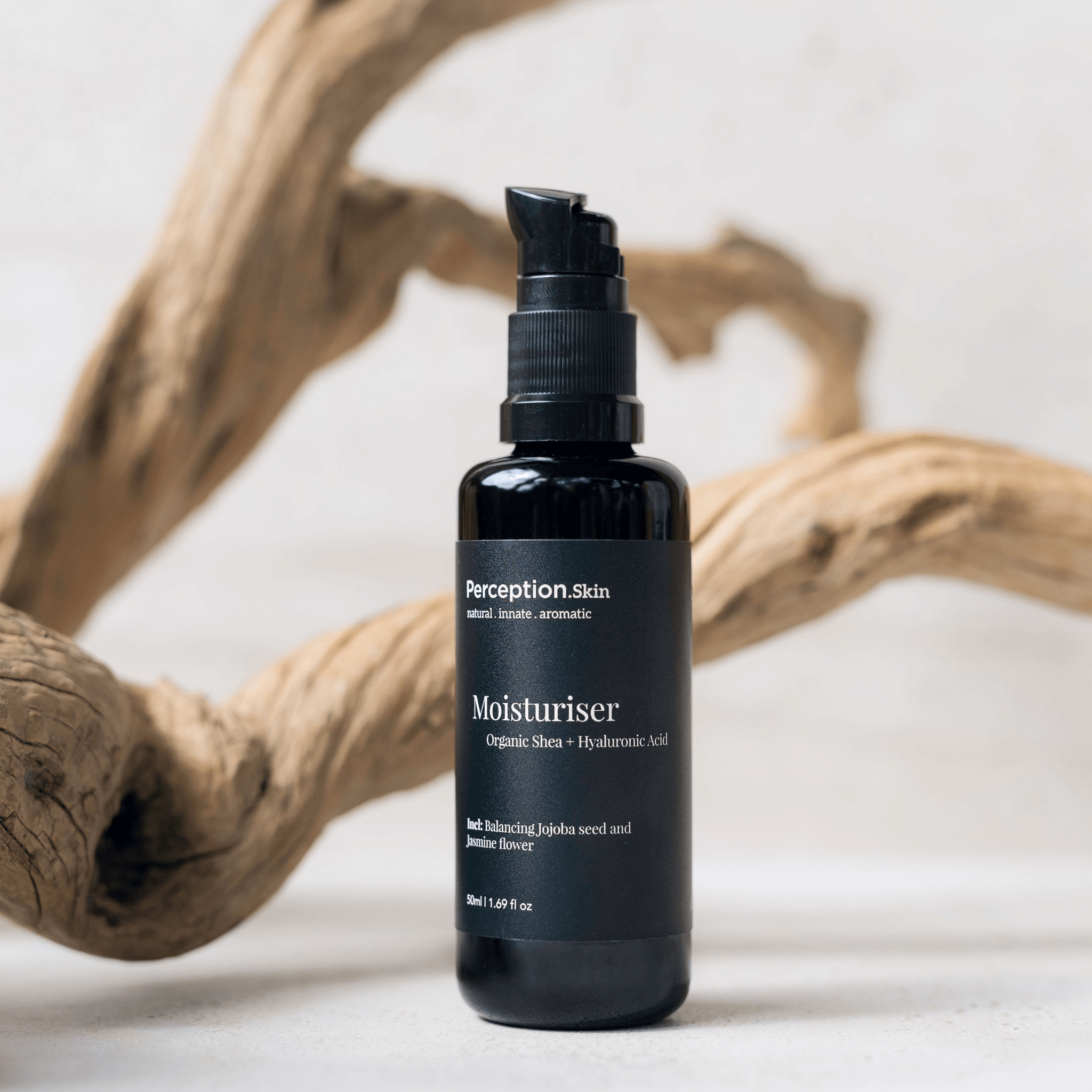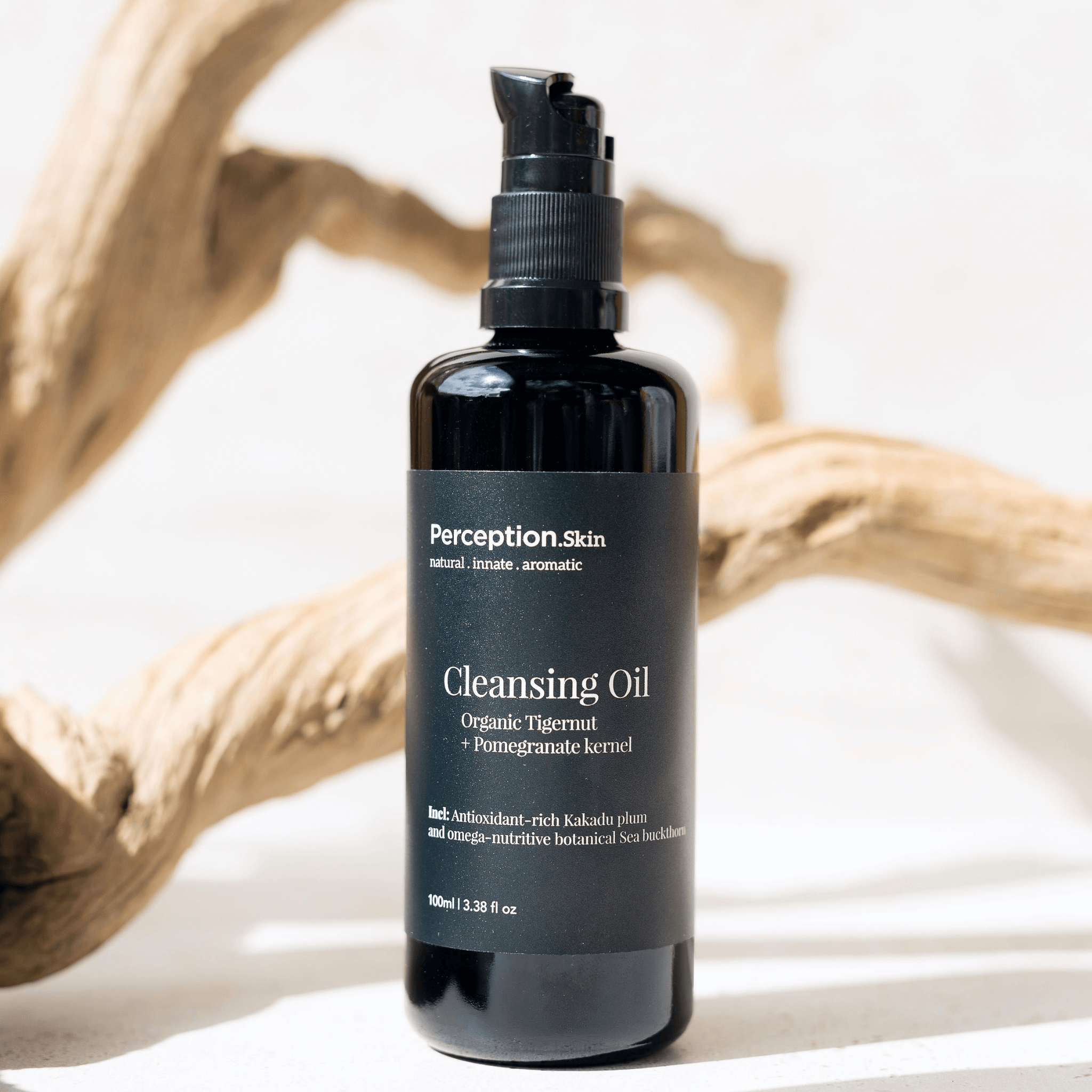
Barrier-Friendly Skincare: Gentle Preservatives for Sensitive Skin
In clean beauty, there’s a growing conversation about what’s considered “natural” and what isn’t. As the founder of Perception Skin, I believe that safe skincare is about evidence, not narratives.
One ingredient that often sparks debate is phenoxyethanol, a gentle, effective preservative that we choose to use in our water + oil emulsion formulations such as our cream cleanser and moisturiser for very good reasons.
Natural Isn’t Always Safer
Our products are built around nutrient-rich organic, CO2 extracted plant oils and botanicals, but even natural ingredients can sometimes cause irritation or spoilage. A high-performing preservative is essential to protect both your skin and the integrity of your product.
Preservatives prevent harmful bacteria, yeast, and mold, things that can easily develop in water-containing or botanical formulas such as our cleanser and moisturiser. Without them, even the cleanest product can become unsafe.
Many so-called “natural preservatives” are inherently more alkaline in nature, which can be opportunistic to disrupt the skin’s delicate acid mantle and throw off formula stability. To counteract this, formulators often need to add extra acids or secondary preservatives; ironically this can increase the potential for irritation.
Having personally experienced severe acne throughout my life and extreme barrier damage, I know how crucial it is to be hyper-vigilant with preservative selections. For sensitive or barrier-impaired skin, stability and gentleness are non-negotiable — and that’s exactly why we choose phenoxyethanol.
It’s also important to note that phenoxyethanol is not an endocrine disruptor like phthalates. These are completely different molecules with entirely different functions and risks. Phenoxyethanol’s safety profile is well-established in skincare, making it a gentle yet effective choice for formulations designed to protect sensitive skin.
Why We Use Phenoxyethanol
Phenoxyethanol is widely used and well-studied in modern skincare. It’s:
• Dermatologist recommended and globally approved for use at safe levels (under 1%)
• Gentle on the skin barrier and stable across a broad pH range
• Biodegradable and non-bioaccumulative — it does not bind to fatty tissue, and there’s no evidence it builds up in the body
• Compatible with both natural oils and actives
In short, it helps keep your skincare fresh, stable, and safe — without compromising feel, scent, or performance.
The “Natural” Alternatives
Some natural or organic brands avoid phenoxyethanol and use benzyl alcohol or butylene glycol (butyl glycol) instead. These ingredients are sometimes plant-derived but are still processed and serve similar functional roles.
• Benzyl alcohol is found naturally in essential oils like jasmine and ylang ylang but is often recreated synthetically for consistency and safety.
• Butyl glycol is a solvent that helps dissolve and blend ingredients evenly in a formula.
So, while these alternatives can also be safe and effective, they are not necessarily “more natural” or “safer” — just different choices depending on formulation needs.
Our Approach
We take a balanced, science-led approach: guided by research, safety data, and long-term skin health. Phenoxyethanol allows us to maintain high product performance while ensuring your skincare remains clean, gentle, and stable — especially for skin that’s sensitive, reactive, or barrier-impaired.
In Summary
At Perception Skin, we believe science and nature can coexist beautifully.
Because confidence in your skin should come from trust — not fear.

